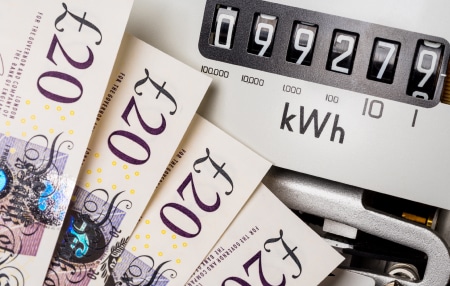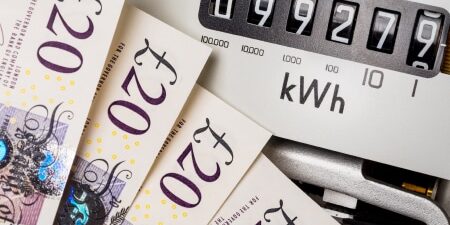
Back in October 2023, the BBC reported that energy firms were holding £8.1bn of customers’ money. A surprising number of people may be unknowingly funding a small fortune in overpayments to their energy providers
In this article, we’ll explore how to find out if you’re owed money and how to get it back.
Understanding energy account credits
What is a credit balance?
A credit balance occurs when you have paid more to your energy supplier than the energy you have actually used. This can happen for several reasons, including:
Spreading costs: Many customers choose to spread the cost of their energy usage throughout the year, paying a fixed amount each month. Since energy usage tends to be lower in the summer and higher in the winter, you might accumulate a credit balance during the warmer months.
Overestimations: If your supplier doesn’t have regular, accurate meter readings, they might overestimate your energy usage, leading to overpayments.
Prepayment meters: If you use a prepayment meter, your account is in credit until the energy is used.
Upfront payments: Some suppliers require an upfront payment when you start a contract to maintain a credit balance.
Live vs. closed accounts
- Live account: This is an account with your current supplier. You might have a credit balance if you have overpaid or if your payments are more than your actual usage.
- Closed account: This occurs when you switch suppliers or move house. Any remaining credit on the account should be refunded to you.
Claiming your credit balance
For live accounts
If you have a live account and notice a credit balance, you can request a refund from your supplier at any time. Before doing so, consider the following:
- Future bills: Having a credit balance can help you manage your future bills, especially during high-usage periods like winter.
- Meter readings: Ensure your meter readings are up to date. Suppliers are more likely to issue a refund if they have accurate usage data.
To claim a refund, you’ll need to contact your supplier directly. You can find their contact details on a recent bill or through their online portal. If they don’t respond satisfactorily, you can file a complaint.
If you need help with filing a complaint, you can use Resolver – it’s a free online tool that helps you resolve issues with a wide range of companies.
For closed accounts
If you’ve switched suppliers or moved, your previous supplier is required to refund any credit balance. Here’s how to proceed:
- Contact the previous supplier: Have your old account number and address ready. If you don’t have these details, you might need to check old bank statements or ask your current supplier to check the UK energy supplier database.
- Request the refund: Suppliers must refund the credit balance within 10 working days of issuing the final bill. If they don’t, you are entitled to £30 compensation.
- Interest on credit: Ask your supplier how much interest has been earned on your credit balance since your account has been closed. They’re not legally required to pay this to you, but it’s worth asking.
What if your supplier goes bust?
If your energy supplier goes out of business, your credit balance is usually protected under Ofgem’s safety net. The new supplier appointed by Ofgem should notify you about how you’ll get your money back. However, this protection doesn’t always extend to small business customers.
Dealing with refund issues
Compensation standards
The energy sector has guaranteed standards to make sure that customers receive their final bills on time and refunds. These standards include:
- Final bill: Suppliers must send a final bill within six weeks of a switch.
- Refunds: Credit balances must be refunded within 10 working days of the final bill.
If these standards aren’t met, the supplier must compensate you. For instance, if they fail to send the final bill on time or refund the credit, they’ll need to send you £30.
If you encounter problems with your refund, you can get in touch with the below:
- Citizens Advice: They offer support and can guide you through the process of claiming your credit balance.
- Energy Ombudsman: This is a free, independent service that can help resolve disputes. If the Ombudsman rules in your favour, the supplier must comply with their decision within 28 days.
Practical tips
- Regular meter readings: Providing regular, accurate meter readings helps make sure your bills reflet actual usage, reducing the risk of overpayment.
- Monitor your account: Keep an eye on your energy account, especially if you pay by direct debit. This can help you identify any credit balances early.
- Smart meters: Consider installing a smart meter. These devices provide real-time data on energy usage, helping you manage your consumption and avoid overpayments.
By understanding how credit balances occur, knowing how to claim refunds, and taking advantage of consumer protections, you can effectively manage your energy accounts and avoid losing money. If in doubt, reach out to consumer advice organisations like Citizens Advice for help.
Unsure whether you should be paying for your energy via a prepayment meter or credit? See Pre-pay Gas Meter vs Credit for helpful tips.

To discover more about how to manage your debt and to receive free debt advice, you can visit www.moneyhelper.org.uk.

